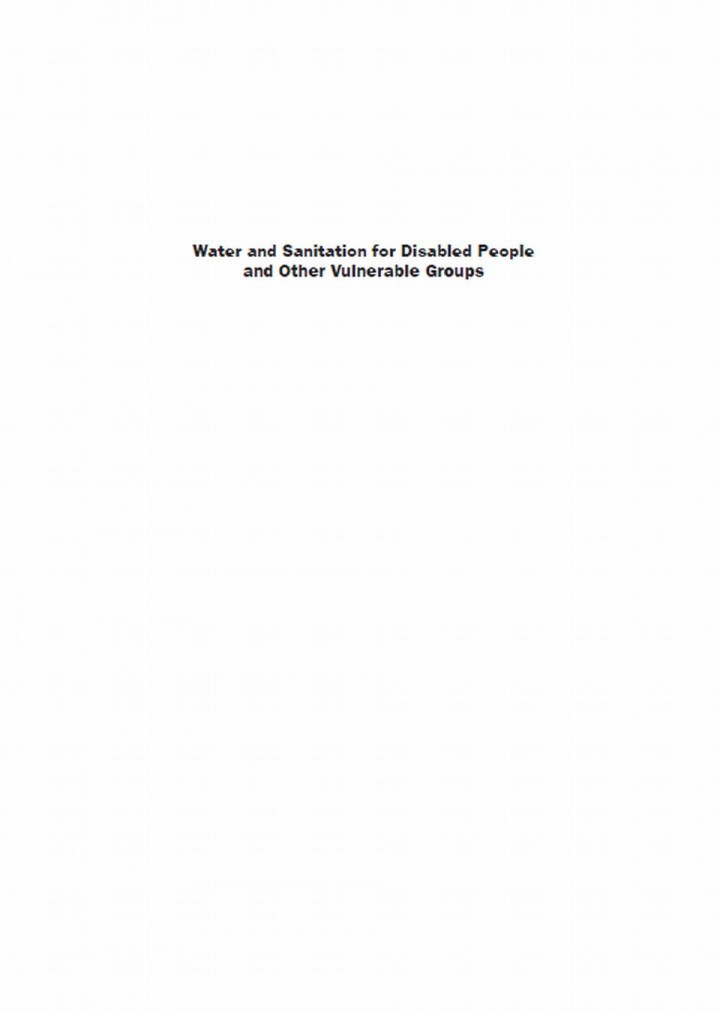Water and sanitation for disabled people and other vulnerable groups: Designing services to improve accessibility (in English and French) Jones, H., Reed, B. (2005)
Over 500 million people in the world are disabled, the majority of whom live in poverty in low-income communities. A major contributing factor to the poverty of disabled people is their lack of access to sanitation and safe water. The Millennium Development Goals of poverty reduction, health and access to safe water and sanitation will be difficult to achieve equitably without addressing the access needs of disabled people. Many other vulnerable groups of people also experience difficulties using water and sanitation facilities, such as frail, elderly people, pregnant women, parents with small children, and people who are injured or sick – including people with AIDS. Despite the size of the problem, almost nothing has been published on this subject to date, and disabled people continue to be ignored by providers of water and sanitation services.
Based on three years of international research and collaboration with water and sanitation and disability sector organisations, this book fills a significant gap in knowledge, and should be of interest to the following audiences: ◾ Water and sanitation sector planners, to enable them to consider the needs of disabled people in low-income communities in the development of strategies and general programme design; ◾ Water and sanitation service providers, to enable them to implement ordinary programmes and services in ways that include disabled people; ◾ Organisations providing disability services, to enable them to address the issue of access to water and sanitation in their work; and ◾ Disabled people's organisations, providing information and ideas to use in advocacy for access and rights, and to engage in the consultation process. The main focus of the book is on facilities for families in rural and peri-urban areas of low- and middle-income countries, but many of the approaches and solutions may also be applied in institutional settings, such as schools and hospitals and in emergency situations. The book is available in English and French. Please see the links below that also allow to download individual chapters.Bibliographic information
Jones, H., Reed, B. (2005). Water and sanitation for disabled people and other vulnerable groups: Designing services to improve accessibility (in English and French) WEDC, Loughborough University, UK
Filter / Tags
PractitionersEnglishFrenchIntersectionality
External links
Downloads
Water and sanitation for disabled people and other vulnerable groups
Type: application/pdf
Size: 13.81 MB

